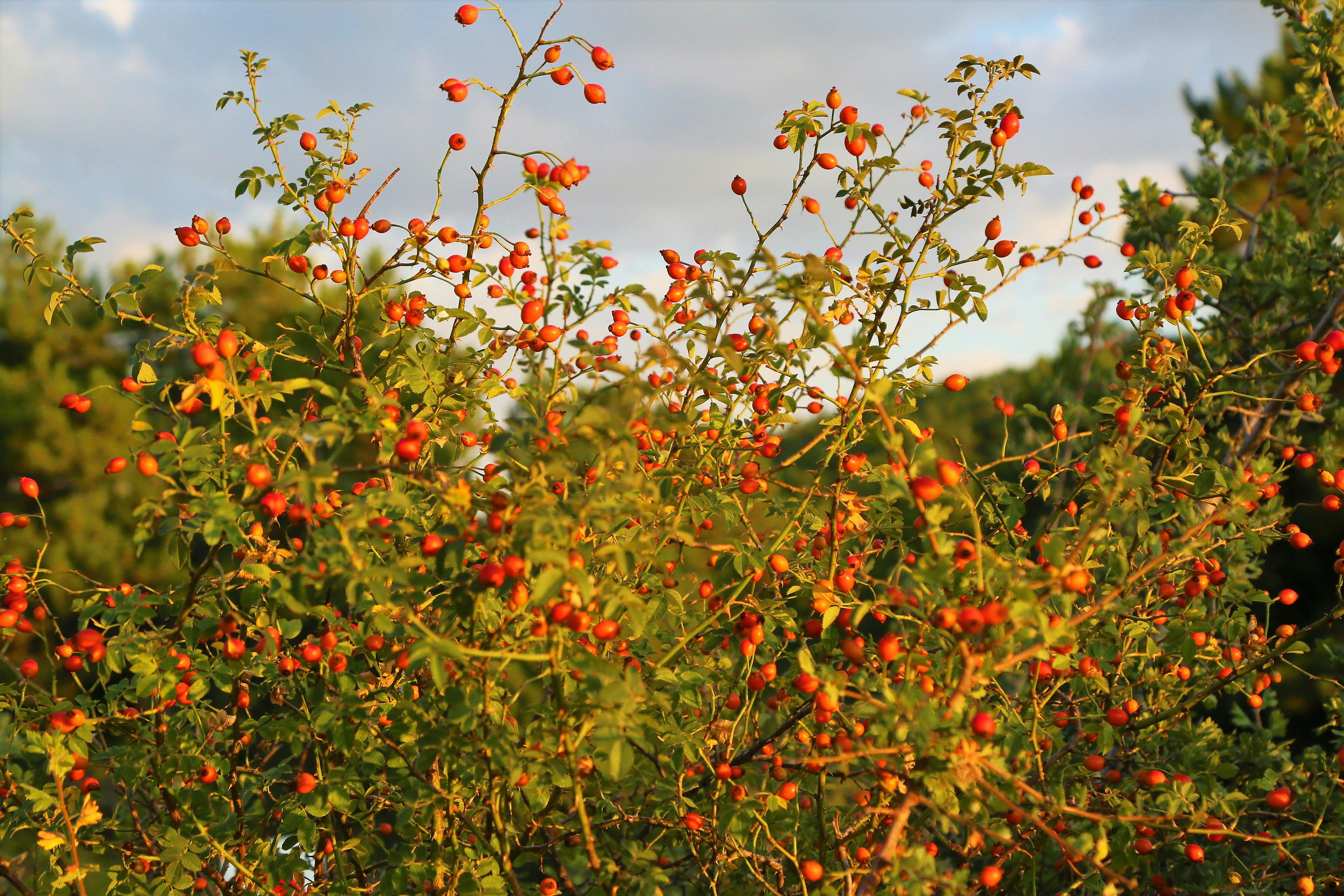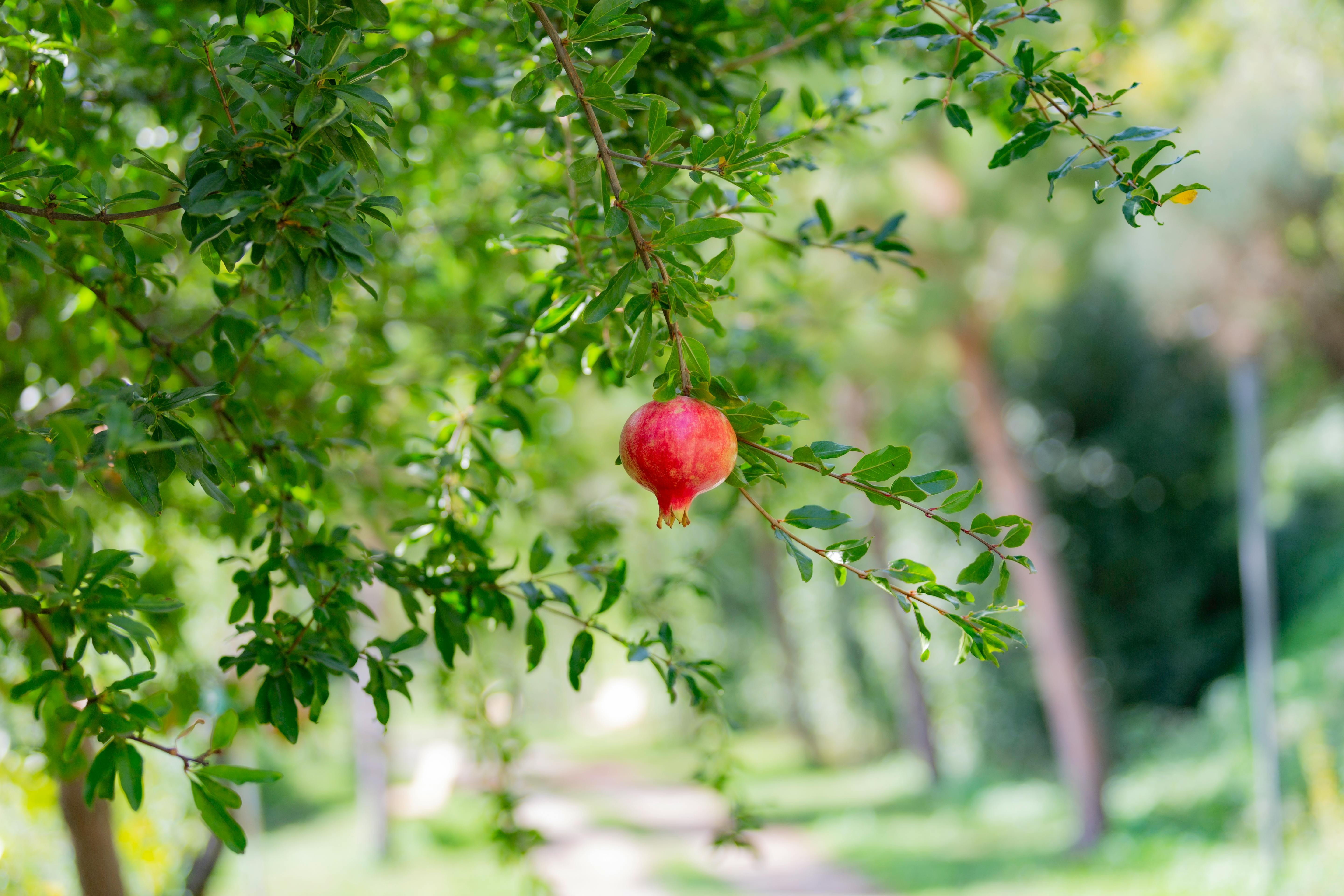The Bible is full of references to bearing fruit, both in a literal and metaphorical sense. In the New Testament, Jesus often speaks of bearing fruit as a way to illustrate the importance of living a life according to the teachings of God. Bearing fruit also represents the abundance of blessings that come from following God’s will. Throughout scripture, we see examples of how bearing fruit is associated with growth and maturity in faith and character. In this article, we will look at what the Bible says about bearing fruit and how it can be applied to our own lives today.The Bible speaks often about bearing fruit in the lives of believers. In the book of Matthew, Jesus tells His disciples, “You shall know them by their fruits. Do men gather grapes from thorns, or figs from thistles? Even so, every good tree brings forth good fruit; but a corrupt tree brings forth evil fruit” (Matthew 7:16-17). In these verses, Jesus is illustrating how to identify a true believer by the “fruits” that they bear in their life. He goes on to say that if a person produces good fruit in their life then they are an authentic believer. The Bible also states that believers should bear much fruit and that our fruit should remain (John 15:16). Bearing much fruit means being productive and making an impact for God’s kingdom. It is important to remember that we can only do this through the power of the Holy Spirit as it is He who gives us strength and guidance to bear good fruit for His glory.
Who Is Expected To Bear Fruit?
The Bible often speaks of bearing fruit as a metaphor for demonstrating a life of faith. In the Bible, God expects us to bear fruit in our lives that is pleasing to Him. This includes living out our faith in practical ways, such as loving one another, taking care of the needy, and being generous with our time and resources. We are also expected to bear spiritual fruit, such as loving God and seeking His will. Bearing fruit is an indicator that we are living out our faith in obedience to God.
In addition to bearing spiritual fruit, we are also expected to bear temporal or physical fruit. This includes showing love and kindness towards others; having compassion on those who are suffering; being generous with our time and resources; helping those in need; and being good stewards of the resources that God has given us.
Bearing fruit is an important part of living out our faith and showing love for God and for others. When we bear temporal or physical fruit, it demonstrates that we are actively seeking to follow God’s will and live out what He has called us to do. It is not only a way to show our obedience but also a way to bring glory to His name. When we bear spiritual fruit, it shows that we have committed ourselves fully to Him and seek His guidance in all areas of our lives.
What Kind Of Fruit Is Expected?
Fruits are an essential part of the human diet and have many health benefits. That is why it is important to know what kind of fruit is expected from a given source. Depending on the region, season and farm, different types of fruits can be expected. For example, in tropical regions, there may be a wide variety of tropical fruits available such as mangoes, papayas and pineapples. In temperate climates, apples, pears and other stone fruits may be available during the summer months.
In addition to the type of fruit available, it is also important to consider the quality of the fruit that is expected. High-quality fruit will typically have a rich color and firm texture. Fruits that are overripe or underripe may not have as much flavor or nutrition as desired. Additionally, certain fruits may require careful handling and storage conditions to remain fresh for a longer period of time.
When selecting fruit from a given source, it is important to consider the type and quality of fruit that is expected in order to get the best possible product for your needs. Knowing what kind of fruit you should expect will help you make an informed decision when buying or consuming fresh produce.
What Does It Mean To Bear Fruit?
Bearing fruit is a metaphor used to describe someone who is producing positive results or making progress in their life. It can refer to spiritual growth, personal development, physical health, or any other area of life where progress is being made. Bearing fruit means that the effort and dedication put into something has been successful and accomplished something. When someone bears fruit, they are making progress and achieving success in a particular area.
Bearing fruit can also refer to the act of producing literal fruits such as apples, oranges, or grapes. In this context, it means that someone is tending to their garden or land and producing crops as a result of their hard work. This could be a hobby or a full-time job depending on the individual’s situation.
In the spiritual sense, bearing fruit refers to faithfulness to God and living according to His will. When someone bears spiritual fruit they are living out their faith in actions and working towards becoming more like Christ each day. This could mean attending church regularly, volunteering time for good causes, reading scripture daily, praying regularly etc.
No matter how it is interpreted bearing fruit is a powerful metaphor that speaks of dedication and hard work paying off. It encourages us to keep pushing towards our goals no matter how hard it gets because eventually our efforts will bear fruit if we remain persistent and faithful.
Why Should We Bear Fruit?
Fruit-bearing is an essential part of our lives, both physically and spiritually. Bearing fruit is an act of obedience to God’s commandment to us to “bear much fruit” (John 15:8). It can also be a sign of spiritual growth and maturity. Bearing fruit is important because it helps us to glorify God and demonstrate His love for us.
Physically, bearing fruit helps us to provide food for ourselves and others, as well as providing nutrients that our bodies need in order to stay healthy. The Bible also speaks of bearing fruit as a sign of obedience and faithfulness (Matthew 7:16-20). As Christians, we are called to be faithful in all aspects of life; this includes bearing fruit with our words and our actions.
Spiritually, bearing fruit helps us to grow closer to God. When we bear good fruit, we are displaying the fruits of the Spirit – love, joy, peace, patience, kindness, goodness, faithfulness and gentleness (Galatians 5:22-23). By showing these qualities in our lives, we are honoring God and deepening our relationship with Him.
In addition to being an act of obedience, bearing good fruit can also be a source of encouragement for those around us. When others see the good works that we do from the fruits we bear—whether it’s helping out in the community or being a listening ear for someone who needs support—it can show them that there is hope in Christ. Bearing good fruit can bring hope into dark places and help others find joy in following Jesus.
Bearing fruit is an important part of living out our faith as Christians. By bearing good fruit through acts of obedience and kindness towards others, we can honor God and demonstrate His love for us.

How Can We Bear More Fruit?
The cultivation of fruit-bearing plants is an ancient practice that has served us for centuries. Now, more than ever, it is important to find ways to increase the production of our fruit-bearing plants in order to meet the needs of a growing population. There are several methods that can be employed in order to increase the yield and quality of our crops.
One way to bear more fruit is through proper fertilization and care of the soil in which the plants are growing. Applying adequate amounts of fertilizer and compost can help promote healthy plant growth and ensure that they have access to all the essential nutrients needed for success. Additionally, monitoring soil moisture levels and ensuring that the plants have access to adequate amounts of water will help keep them healthy and productive.
Another essential aspect in bearing more fruit is providing appropriate pruning techniques. Pruning involves removing parts of a plant such as branches or other growths in order to encourage better growth in other areas. Pruning helps improve air circulation, light penetration, and encourages new growth which can lead to improved yields and higher quality fruit production.
Finally, selecting appropriate varieties for your region will help ensure that you are getting the best results from your efforts. Different fruits have different requirements for optimal growth so it is important to choose varieties that are adapted for your area in order to get maximum yields and quality from your plants.
By employing these methods, we can ensure that our fruit-bearing plants will thrive and bear more abundant harvests with higher quality produce. With careful consideration we can ensure that our efforts result in greater success for our gardens and orchards today and into the future.
What Happens If We Don’t Bear Fruit?
When we do not bear fruit, it means that we are not producing the desired results in our lives. We may be missing out on opportunities for growth or progress, and we may be setting ourselves up for failure in the future. Without bearing fruit, we will be unable to reach our full potential and realize our dreams. We will also miss out on the rewards that come with achieving success.
Without bearing fruit, it is difficult to maintain momentum and progress in life. Without progress, we can become stagnant and unmotivated to achieve our goals. When we fail to bear fruit, it can lead to feelings of discouragement and depression as well as a lack of hope for a better future. This can cause us to give up on our dreams and goals before we ever have a chance to realize them.
When we don’t bear fruit, it is usually due to a lack of focus or effort on our part. We may be unfocused in our efforts or simply not putting forth enough effort to make a difference in our lives. Without focus and effort, we will never see the desired results that come from working hard for something.
It is important that we recognize when we are not bearing fruit so that we can make changes before it is too late. We need to evaluate what changes need to be made and then take action towards achieving those changes so that we can begin bearing fruit again. With some dedication and hard work, it is possible to start seeing positive results once again in our lives.
Examples Of Bearing Fruit In The Bible
The Bible is filled with stories about bearing fruit, both in a literal sense and in a figurative sense. In the book of Genesis, Adam and Eve are told to be fruitful and multiply. This is an example of bearing literal fruit—children.
In the New Testament, Jesus often speaks of bearing fruit and uses it as an analogy for good works and faithfulness. In Matthew 7:16-20, Jesus says that people will know whether something is good or not by the kind of fruit it produces. He goes on to say that if one’s tree does not bear good fruit then it will be cut down.
In John 15:1-17, Jesus talks about how believers are branches on His vine and they must bear much fruit for Him. He says that if we remain in Him and abide in His word, we will bear much fruit. This is an example of bearing figurative fruit—works done out of love for God.
Paul also speaks about bearing spiritual fruit in his letters to the early churches. In Galatians 5:22-23 he lists several qualities such as love, joy, peace, patience, kindness etc., as fruits of the Spirit that should be seen in every believer’s life if they are walking closely with God.
These examples demonstrate how bearing fruit is a recurring theme throughout the Bible. It is used both literally and figuratively to refer to producing something either tangible or intangible depending on the context. Whether literal or figurative, we can all learn from these examples how important it is for us to bear good fruit in our lives for God’s glory!

Conclusion
Bearing fruit is an important part of living a Christian life. Not only does it demonstrate our faith to others, but it also brings glory to God and builds up the church. It is a sign of spiritual maturity and is often used as an indicator of whether or not we are living a life pleasing to God. The Bible commands us to bear fruit, and offers us guidance on how to do so. We should be obedient to God’s commands by living lives that are pleasing to Him, obeying His Word, and bearing fruit in every area of our lives.
Ultimately, bearing fruit in our lives is something that we should all strive for. It shows our commitment to God and His Word, and provides us with an opportunity to glorify Him through our actions. May we all take the time to reflect upon what it means to bear fruit in our lives and make sure we are doing everything we can in order to please the Lord.



